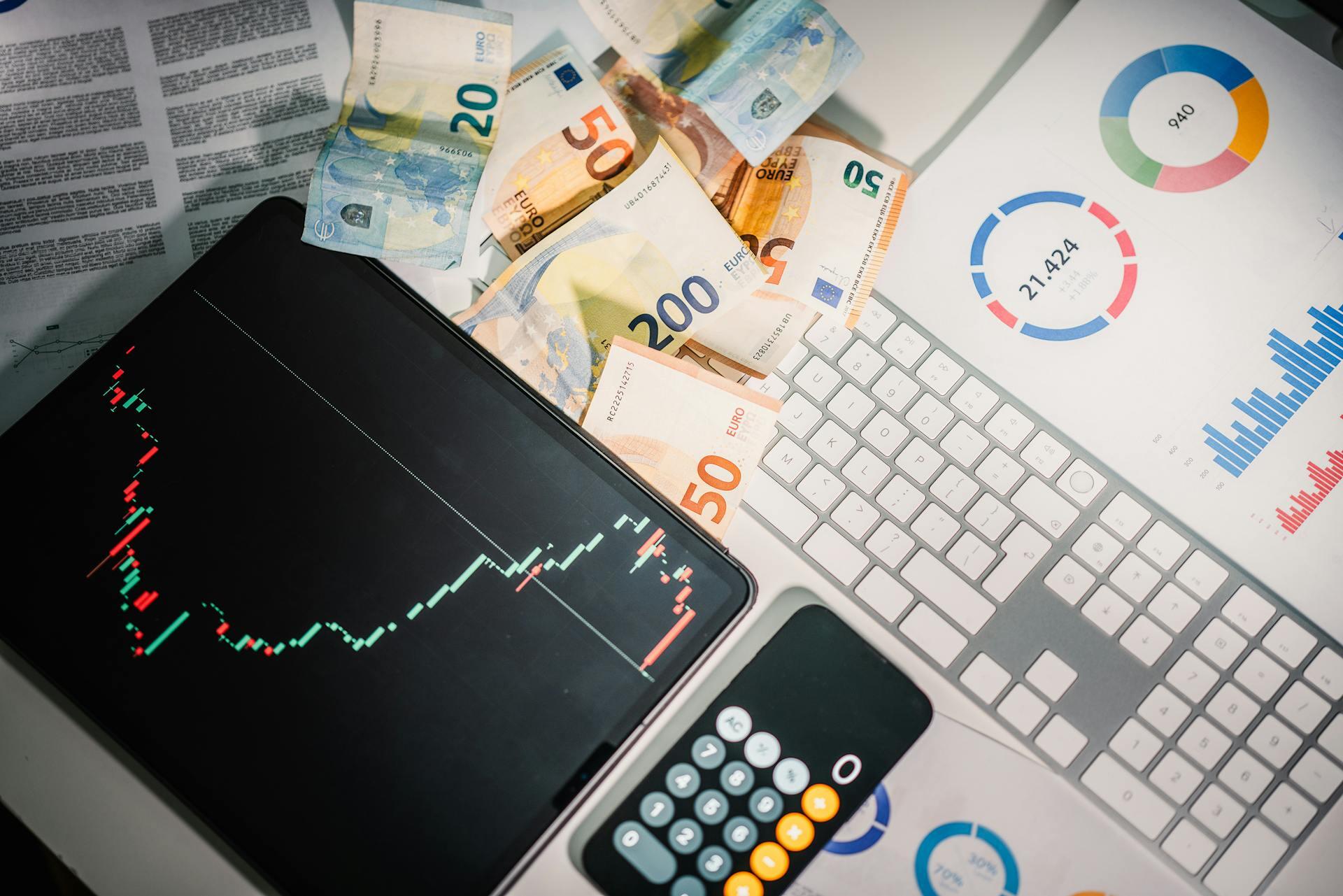Learning about economics can feel like a daunting task. It’s a huge subject that includes both mathematical and statistical elements as well as psychological and sociological factors.
To get a better understanding of the fundamentals of economics, or any subject, you can begin by learning some of the core concepts and definitions of commonly-used economic words. Here are 30 of the most common economic terms and jargon to know when you’re learning about economics!

Absolute Advantage
When a country has the ability to make a product of higher quality and for lesser costs or opportunity costs, they have the absolute advantage.
Bear Market
A bear market represents a negative or negative outlook on a stock market’s performance, often with such markets falling into a downfall spiral, where prices continue to drop.
As a result of a bear market, the selling of stocks tends to increase. Investors may expect to incur losses, or, they may be tactically selling stocks before they reach their peak low, intending to buy them back when they are even less expensive.
The term supposedly comes from the word "bearskin" as this was the word used in the 18th century for short-selling or speculative buying. It's related to the proverb "Don't sell the bear's skin before you've caught it".
Bull Market
Another commonly-known entry in the book of economic terms and concepts, a bull market represents a much more positive outlook on a stock market’s performance compared to a bear market. In a bull market, stock prices either have or are expected to increase.
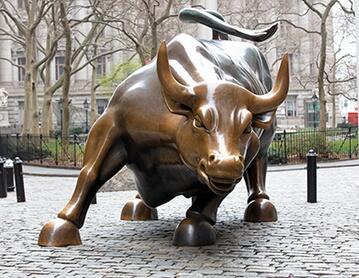
You can remember the difference between a bull and bear market with this mnemonic: a bear swipes down and a bull rears its horns upwards.
Business Cycle
The business cycle refers to the overall expansion and subsequent contraction of an economy over a period of time. As a result, the business cycle is part of the wider field of macroeconomic theory. You can find a definition of macroeconomics below.
Business cycles are measured by their depth, diffusion, and duration (also known as “the three Ds”). The depth is the distance from the peak to the trough, the diffusion is how many activities, industries, and areas it affects, and the duration is how much time there is between the peaks and the troughs.
Comparative Advantage
A term attributed to economist David Ricardo. Comparative advantage is a theoretical concept that argues that countries should trade with one another for things that each country specialises in making. So, even if both countries have the ability to create the same things, if each country specialises in the one that makes the most financial sense and trades with the other, it’s better than each country trying to be self-sufficient and not trade.
Consumer Confidence
The public’s attitude towards the economic outlook regarding things like political unrest and job stability. The measure is taken via survey. Low consumer confidence means people are less likely to spend money.
Deflation
Deflation is the opposite of inflation. It occurs when demand reduces, and this, in turn, produces results such as reduced prices. It's indicated when inflation is below 0% (therefore negative).

Division of Labour
The division of labour describes the process of breaking down tasks so that separate groups or individuals can carry out each task. It is often associated with the production process and overall productivity.
Division of labour and specialisation is one of the key reasons that human civilisation exists. Prior to the division of labour, it was theorised that all humans were essentially hunter-gatherers, which is inefficient overall. By dividing labour and allowing for specialisation, different members of tribes and groups perform different roles with greater efficiency, while all needs of the group are still met.
Economically Inactive
People of average working age (generally 15 to 64 years old) who are not employed or seeking a job and who are also not full-time students. They are usually people caring for relatives, people who cannot work due to illness or injury, early retirees, or people who have given up trying to find a job (“discouraged workers”).
Financial Markets
Refers to a market or marketplace where financial assets are bought and sold. A common example of a financial market is a stock exchange.
Fiscal Policy
Fiscal policy refers to a government’s spending and how it affects the economy, particularly if spending levels change.
This is related to everyone's favourite thing: taxes. Fiscal policy determines how governments generate revenue (taxes) and then how they subsequently spend it. As this can greatly affect the economy, it's both incredibly important and difficult to get right.
Framing
A concept from behavioural economics that suggests the way a proposition is made affects the reaction of the consumer. For example, advertising a subscription for $72 per year may attract fewer customers than a subscription advertised as $6 per month.

Gross Domestic Product (GDP)
GDP is often used as a measure of a nation’s economic performance and activity. It is usually calculated on a quarterly or annual basis.
It can be a useful value to see how countries compare economically to one another, but it also has its downsides as a measurement as it can't really be used to indicate the cost of living or inflation rates. In these instances, it's more useful to use a GDP per capita at purchasing power parity (PPP) as PPP takes into account individual currencies and what they can buy.
Growth Rate
The growth rate is a measure of growth and how it increases over a period of time. It can be used to describe economic growth, gross domestic product, or items such as annualised growth rates for a company.
Interest Rates
An interest rate is calculated by applying a percentage to the amount of the principal being borrowed. A common example of a principal is a loan or some other form of debt. The amount of interest charged is usually calculated by reference to an annual rate.

Inflation
In its simplest terms, when there is inflation there is a rise in the prices charged for goods and services. Where an economy has inflation, the cost of living tends to rise.
Inflation can also come about through the money supply. If there's more of a given currency out there (or in circulation), the purchasing power of said currency will likely decrease.
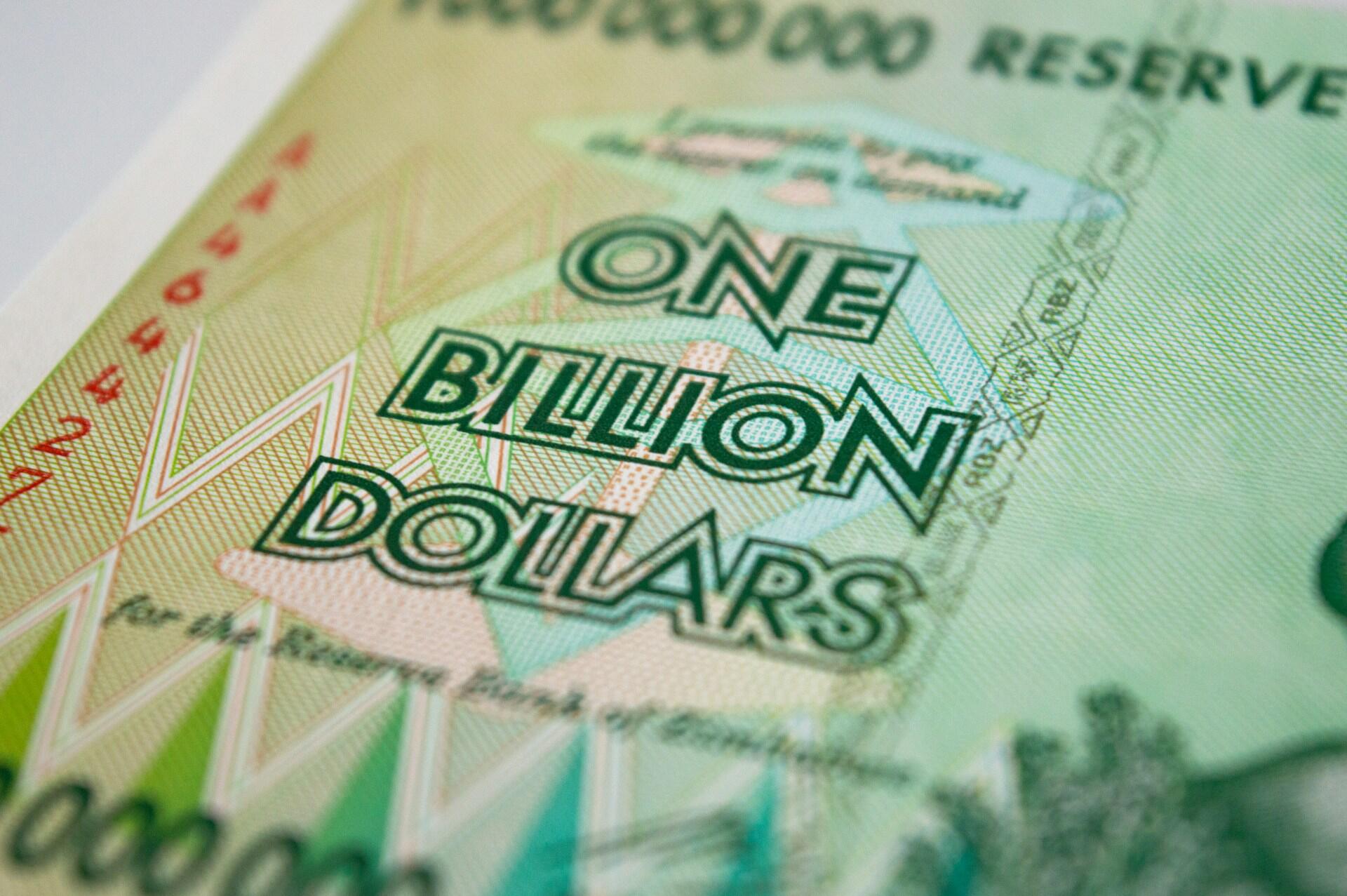
Keynesian Economics
Developed by the economist John Maynard Keynes, Keynesian economics describes Keynes' economic theories and beliefs, which contained the conviction that government involvement in the economy through spending and taxes could help increase demand and move an economy out of a depression.
Lagged Effect
The time it takes to notice a change in the economy due to an economic policy. For example, it takes about 18 months to see the full effect of a change of interest rates. The issue is that by the time the policy begiins to have an effect on the economy, economic circumstances may have changed.
Law of Demand
The law of demand examines how customers’ buying habits change when prices increase. Specifically, the theory posits that all other things being equal, when the prices of a good increase, the demand for that good falls. Put simply, people are more interested in buying things when they cost less.
Law of Supply
The law of supply states that all other things being equal, an increase in price levels results in an increase in the quantity of those goods that are supplied.
When something is worth a lot of money or commands a higher price, more people will look to sell something or make products available for sale.
Macroeconomics
Macroeconomics studies how the economy behaves in the aggregate, i.e. as a whole. Concepts examined in macroeconomics include:
- Inflation;
- The level of prices in the economy;
- Growth rate.
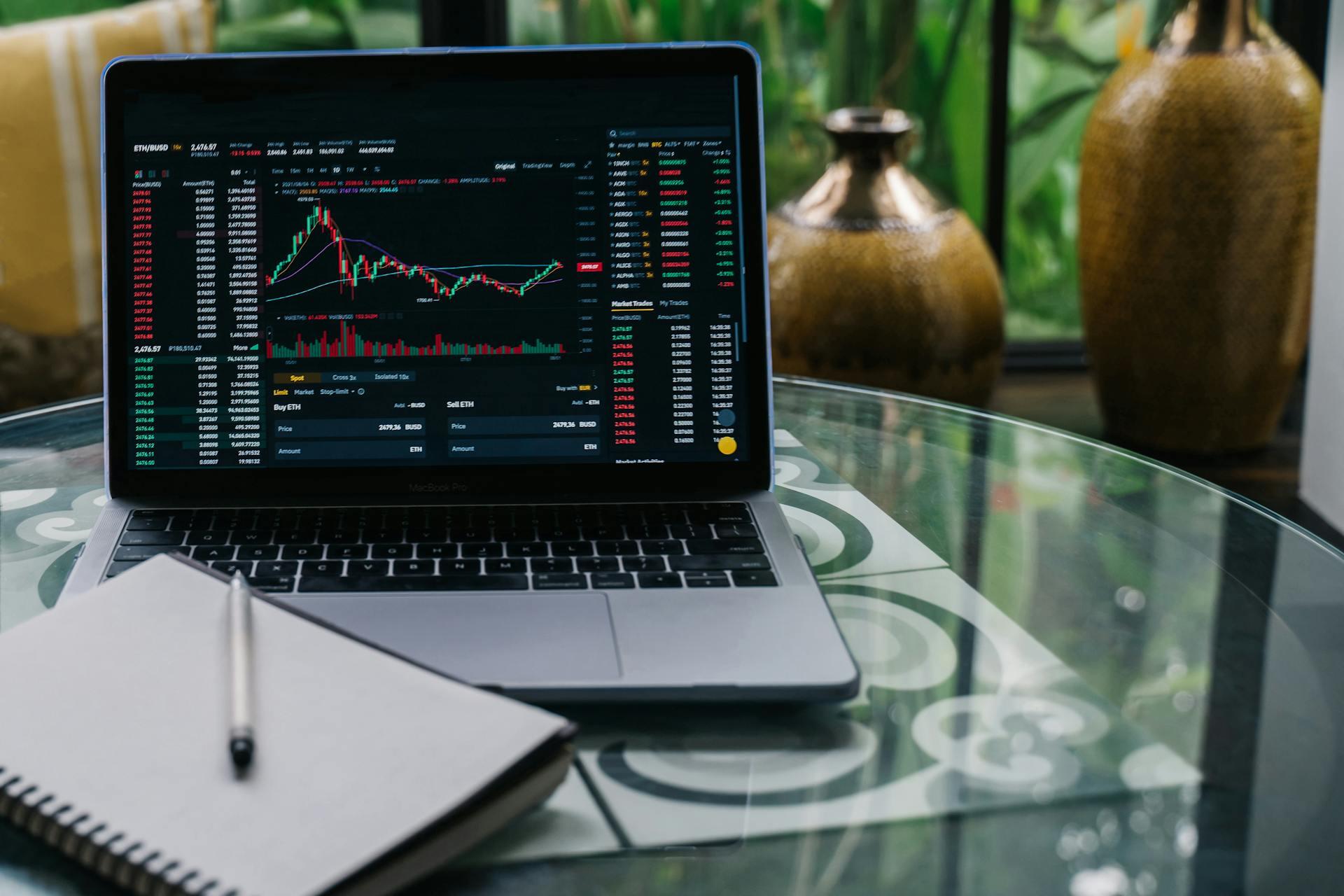
Marginal Utility
Marginal utility refers to the amount of satisfaction a consumer has by consuming a good or service. Marginal utility can be used by economists to gauge how much of a good or service a consumer should buy.
Microeconomics
The opposite of macroeconomics is microeconomics. Microeconomics focuses on how individuals and companies act within an economy, and how their behaviour also influences an economy.
Monetarism
Monetarism is a school of thought that centres on the idea that the volume of money in an economy is a key factor in the amount of economic activity and growth. It is a theory that sits in contrast to Keynesian economics.
Oligopoly
A term used within the area of market share. In a monopoly, there is only one supplier in the market, and in a duopoly, there are only two. In an oligopoly, there are more than two suppliers in the market, and the actions of one supplier can influence the actions of the others.
Opportunity Cost
Opportunity cost is the cost of missing an opportunity in order to take on a different opportunity. An example of opportunity cost can be seen in investors, who may have to forego investing in one company in order to invest in another.
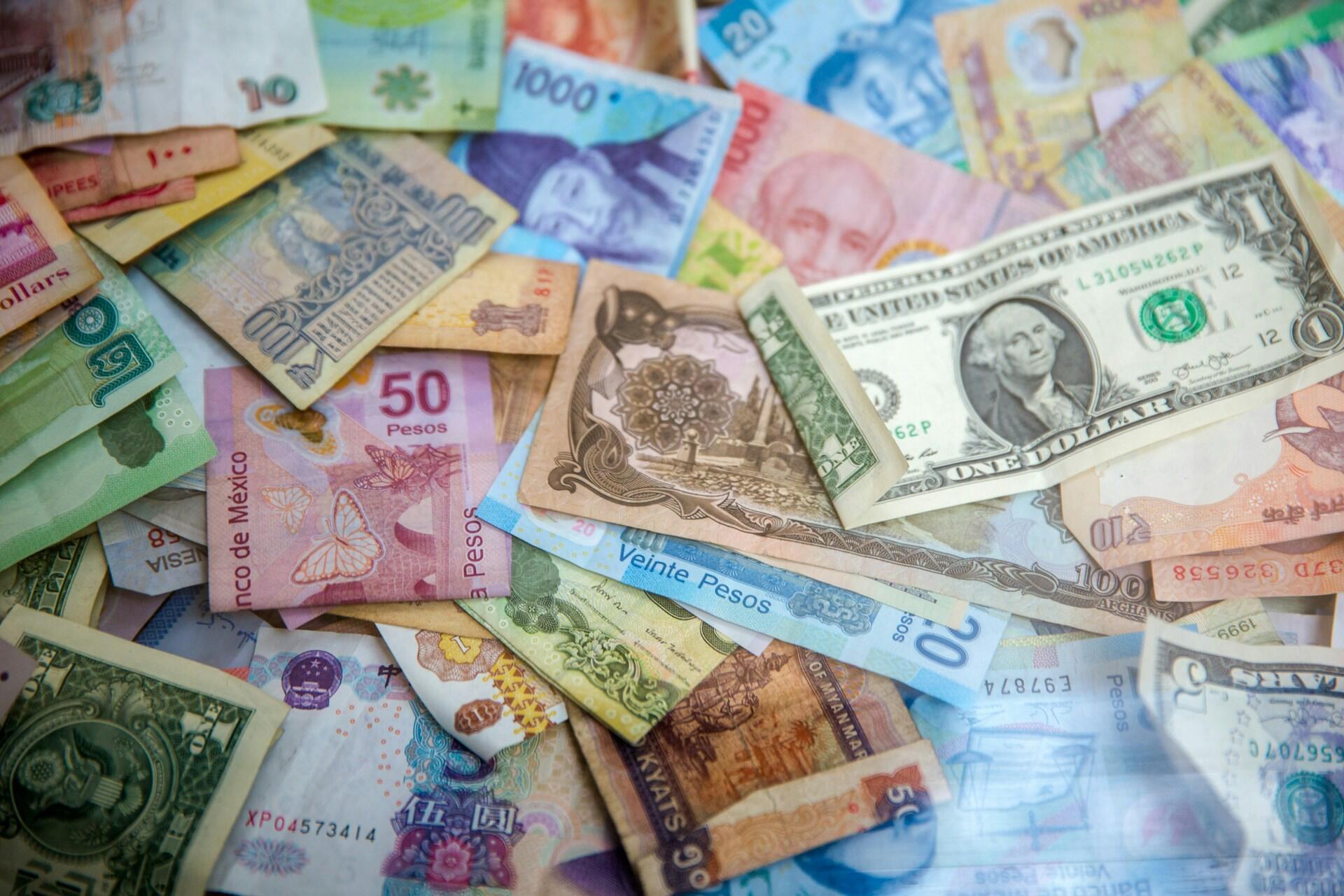
Price Elasticity of Demand
The elasticity of demand describes how demand for goods or services increases or decreases when the price of that good or service changes. Goods that generally are susceptible to the elasticity of demand should exhibit the following patterns:
- An increase in the cost of the good will lead to a decrease in demand; whereas
- A decrease in the cost of the good will lead to an increase in demand.
Stagflation
Stagflation describes an economy that is experiencing slow economic growth, whilst also experiencing inflation and high levels of unemployment. Stagflation is far less common than inflation or deflation.
The Invisible Hand
An idea introduced by the philosopher Adam Smith, the invisible hand describes the benefits that society at large can enjoy as a result of the actions of self-interested individuals. The invisible hand was an argument used to advocate the benefits of a free market.
Trade Barriers
Trade barriers relate to a government policy or regulation that limits or controls international trade. Examples include:
- Tariffs
- Trade quotas
- Embargos
Learn More About Economics and Economic Terminology
Ready to dive deeper into the world of economics?
You can find a professional private tutor on Superprof today and brush up on your knowledge for fun, to help your career, or to pass your classes. Learn everything from basic economic terms to advanced economic concepts with a private economics tutor.
Search for a tutor nearby who can provide face-to-face lessons or discover a tutor anywhere in the world ready to provide online classes with Superprof!
Summarise with AI:

